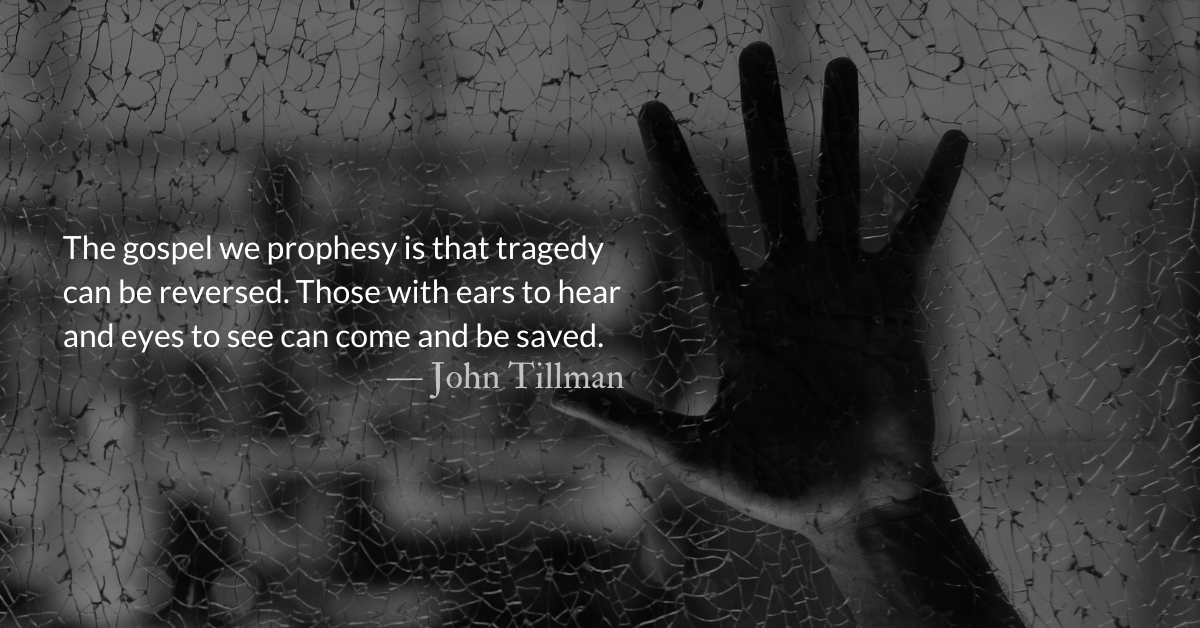Scripture Focus: 1 Kings 14.14-16
14 “The LORD will raise up for himself a king over Israel who will cut off the family of Jeroboam. Even now this is beginning to happen. 15 And the LORD will strike Israel, so that it will be like a reed swaying in the water. He will uproot Israel from this good land that he gave to their ancestors and scatter them beyond the Euphrates River, because they aroused the LORD’s anger by making Asherah poles. 16 And he will give Israel up because of the sins Jeroboam has committed and has caused Israel to commit.”
Reflection: Kingdoms Breaking Bad
By John Tillman
Watching a comedy we often imagine ourselves as the bumbling, yet eventually triumphant hero. Watching tragedies, however, we tend to disassociate from the hero. We judge them harshly, thinking we would have done differently.
The show Breaking Bad is one example. Audiences loved Walter White and mistook him for a system-challenging anti-hero and they identified with him. Then, slowly, his character arc was revealed—the sympathetic hero who becomes a villain. Some fans felt betrayed. They wanted Prince Hal and got Macbeth. But it was all there in the title: “Breaking Bad.” How did we expect it to end?
Jeroboam’s story starts like a hero’s story. Like David, he was secretly told by a prophet that he would be king. When idol worship was expanding in Solomon’s kingdom, Ahijah pulled Jeroboam aside, telling him that he would be king because of Solomon’s sins. Representing the fracturing of the nation, Ahijah tore his new cloak into twelve pieces, giving Jeroboam ten of them. (1 Kings 11.29-31)
But this story is a deep tragedy. Near the end of Ahijah’s life, the blind prophet could see the bloody end of Jereboam’s dynasty. For generations, Jeroboam’s name would become a byword for biblical authors to measure the evil of kings to come.
As Israel fractures, each dynasty hopes to be the answer. But each one, especially in the northern kingdom, “breaks bad.” Ahijah prophesies to Jeroboam that it will all end in death and exile.
Ahijah ministered in a country going bad fast and with worse coming over the horizon.
Through Ahijah’s words, we hear God’s frustration with Jeroboam and his other chosen instruments.
Like Ahijah, we may serve in a nation or a time when leaders rise with promise and fall with the shattering clamor of scandal. It is still possible to serve God faithfully amidst political corruption, idolatry, and a culture that rejects God. The prophets prove it.
Ahijah says, “I have … bad news,” but we also bear the Good News. Our God is slow to anger, gracious, and forgiving. He pleads with those who reject him to repent.
The gospel we prophesy is that tragedy can be reversed. Those with ears to hear and eyes to see can come and be saved. Those doomed to ruin can be restored. Those exiled can come home. Those who have been harmed can be healed. Those dead can be raised to life.
Divine Hours Prayer: The Greeting
Let those who seek you rejoice and be glad in you; let those who love your salvation say forever; “Great is the Lord!” — Psalm 70.4
– From The Divine Hours: Prayers for Summertime by Phyllis Tickle.
Today’s Readings
1 Kings 14 (Listen – 5:22)
Colossians 1 (Listen – 4:18)
Read more about Uprooting and Replanting
We the unworthy and unrighteous can be replanted into a new kingdom of peace.
Read more about Prepare for the End
Christians are sometimes guilty of looking forward to the apocalypse like a private revenge fantasy.







